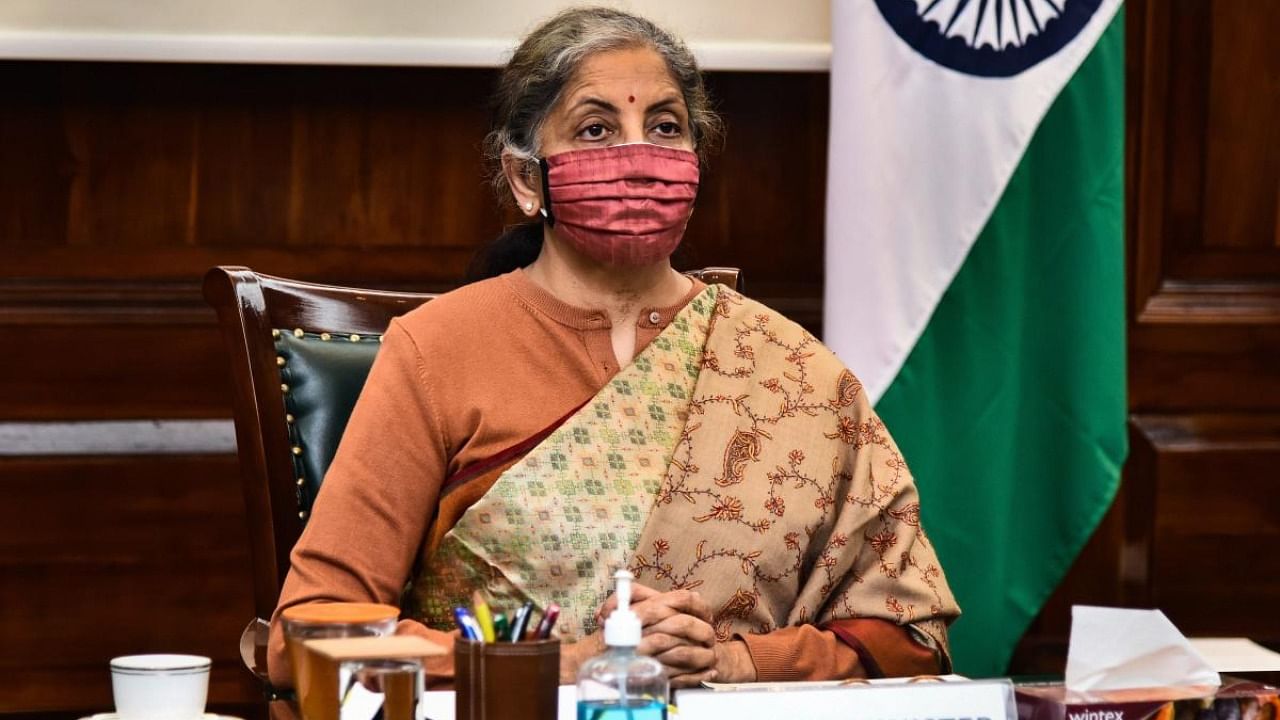
A top India-centric American business advocacy group has suggested Finance Minister Nirmala Sitharaman to lower tariff in the Union Budget if the country wants to compete with China-backed mega free trade agreement Regional Comprehensive Economic Partnership (RCEP).
China and 14 other countries in November last year established the world's largest trading bloc that represents roughly 30 per cent of the world’s GDP and population.
India walked out of the mega free trade agreement as negotiations failed to address New Delhi's outstanding issues and concerns.
The members of RCEP are 10-nation bloc ASEAN (Indonesia, Malaysia, the Philippines, Singapore, Thailand, Brunei, Vietnam, Laos, Myanmar and Cambodia), China, Japan, South Korea, Australia and New Zealand.
“If India can focus on a much more predictable environment from a policy framework it will give more confidence to the investors. Bringing a sense of transparency in policy making also sends a very positive signal. And if India is going to be competing, especially with the RCEP, then it has to look at lowering its tariff,” Mukesh Aghi, president of US India Strategic and Partnership Forum (USISPF) told PTI.
Pointing that in the last 12 months tariffs in India have been going up and up, he said, “What it does is yes, it protects a local industry, but it doesn't make them competitive. So, it is important to protect the local industry, but at the same time, it is important to make them more competent intervals. Lowering of tariff is important."
In a recent submission to the Union Finance Minister, USISPF recommended specific measures to improve direct and indirect tax collection, which will promote private investment and ensure fiscal and monetary stability.
“On the direct taxation side, we recommend specific amendments to facilitate activity in the digital economy, reduce tax and depreciation rates to boost investment, clarify carry-forward and loss-offset rules, and streamline regulations related to withholding tax, indirect transfer, and dispute resolution,” USISPF said.
“For indirect taxes, we recommend amendments to address challenges with deferred duty payments, simplify various processes and procedures, and align customs regulations more closely with actual industry practices. Together, these changes will free up much-needed investment capital, make it easier for companies to manage their tax liabilities, and provide a needed boost to the economic activity during the next fiscal year,” it added.
To increase MSME access to finance in India, USISPF has recommended specific steps to promote supply-chain financing, subsidise the insurance of MSME loans, improve the assessment of MSME credit risk and loan disbursement, and facilitate faster settlement of claims between healthcare providers and insurers.
“We have recommended that the midsize public banks should be privatised. If you want large institutional investment to come in, then the clause you have management control and board control lies with the Indian partner has to be removed,” Aghi said.
Because American corporate boards will not approve, an investment, if it goes in India and they don't have a management or board control over those investment. “Recognising that the pandemic has accelerated digitisation of large swathes of the economy, we recommend the government ensure Digital India can transact securely by expanding the use of digital signatures in negotiable instruments, powers of attorney, deeds, contracts, and other legal documents,” USISPF said.
Responding to a question, Aghi exuded confidence that the Indian economy will grow in double digit this year. “We are expecting the economy to really pick up and we are seeing the fundamentals,” he said.
Aghi said that the challenge is going to be reviving the demand side in the Indian economy, more and more. “But it's important that India basically focus on drinking at least a USD100 billion investment every year for the next 10 years if it wants to be a USD 5 trillion economy,” he said.
He also urged the Indian government not to ignore the services sector, which is the strength of the Indian economy.
Noting that trillions of dollars of capital in the US is looking for higher return, Aghi said that there is a need for India to provide a sense of assurance and comfort to long-term investors. At the same time the interest in India in the American corporate sector is very bullish.
Apple, for instance, which till two years ago did not manufacture anything in India, today is assembling roughly 400,000 smartphones every month, and most of them being exported to the world.
“That sends a message that India can be a viable world-class quality assured environment to produce smartphones and be able to export it around the world. Overall, I feel the sentiment is still very strong and as the tension goes up with China, India will become more and more important for US companies,” he said.